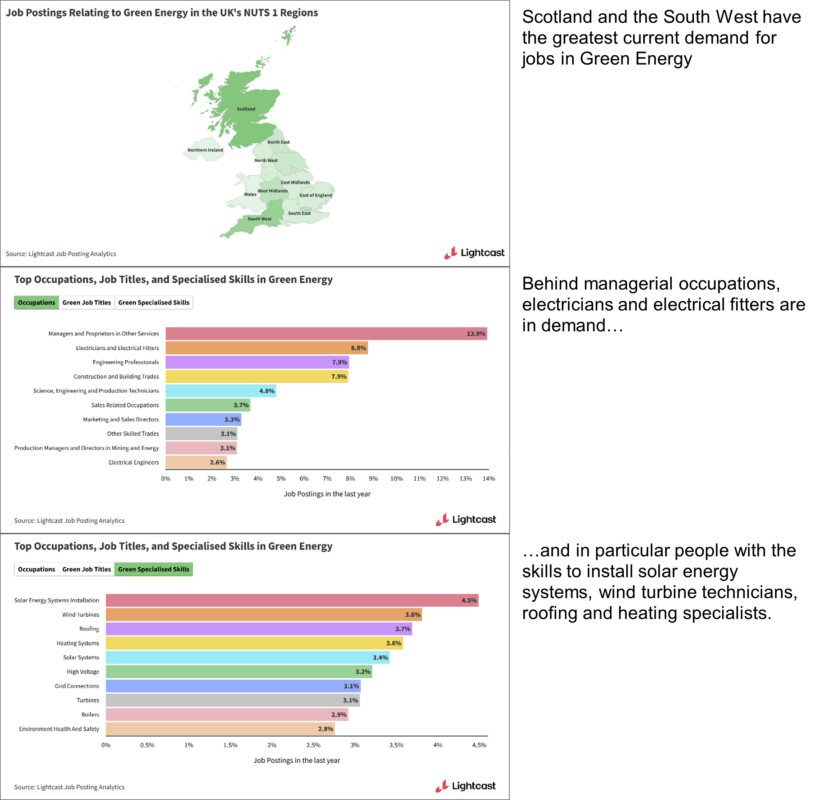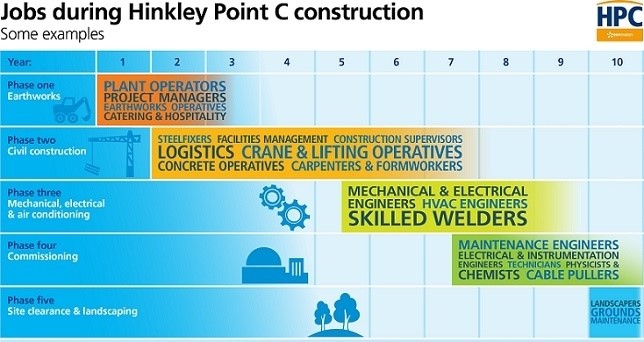New green horizons in the context of STEM skills for life, learning and work

Across three articles to celebrate British Science Week, Cerian Ayres considers the challenges and opportunities in technical STEM education.
So much has changed since British Science Week 2022. News about war in Europe – and the subsequent wave of refugees, energy crises and food shortages – was a grave counter to the post-pandemic optimism that we had enjoyed all-too-briefly.
Our horizons have changed too: a war 1,500 miles away feels much closer in terms of the impact on our daily lives. We’ve felt the economic shock and we’re better able to understand the inter-connectedness of global supply chains, particularly for energy and for agriculture. Climate change is never far away from the headlines: unseasonal weather in southern Spain, combined with a decline in our agricultural self-sufficiency, limited our supermarket supplies in February and stimulated unusual political debate about turnips.
What hasn’t changed is that fact that the answer to our global challenges lie in science, technology, engineering and maths, and in our ability to educate tomorrow’s generation through excellent technical teaching. It’s more important than ever that we improve public understanding of the scientific issues that affect us all, that we engage communities in understanding science and that we recruit, train and retain science educators that can prepare learners and apprentices for jobs in emerging, ‘green’ sectors.
The long view
STEM education needs to take a long view. Valuable lessons can be learnt from industry and its approach to major infrastructure projects such as EDF’s construction of Hinkley Point C nuclear power station. As illustrated below, EDF mapped out training and skills requirements across a ten-year timeline, and worked with local and regional FE providers to ensure that there was a skilled workforce in place through every stage of construction.
Whilst large, discrete construction projects lend themselves to this kind of workforce planning, this kind of long view should be possible across all localities and regions through Local Skills Improvement Plans (LSIPs). Led by ‘employer representative bodies’, in partnership with education providers and other stakeholders, LSIPs will set out future skills requirements and “explain where and why changes in local provision are needed to better meet those needs”.
Gaps between skills supply and demand are already evident: they’re often clear from a search through your local paper or jobs site. Consider these reports from Lightcast:

These skills shortages are a symptom of a previous planning deficit in STEM, and the ‘lag’ between skills planning and supply to employment is significant: if you haven’t already, now is the time to engage your organisation in planning for long term trends in STEM training and skills.
Later this week we’ll explore the agricultural and agritech sectors specifically, but you might find this video about skills planning in that sector informative.
Green skills for all
In addition to skills for ‘green jobs’ we need to consider the development of ‘green skills for all jobs’, and the transformation to a green economy across all sectors. The 2021 Green Jobs Taskforce found that “every job has the potential to become ‘green’ as the world moves to combat climate change, and there are a huge range of skills which will support the transition to a net zero economy”.
But what are those skills?
Also in 2021 the Brookings Institute released “A new green learning agenda: Approaches to quality education for climate action” which is a great starting point for considering ‘green skills for all’ including:
- Skills for green jobs
- Green life skills
- Skills for a green transformation.

Many of the above are very relevant for British Science Week and for technical education in STEM. Some, like data analysis, won’t be a surprise, but may have wider applications than you’d imagine- later this week we’ll explore the relationship between data science and agriculture, for example- how this might impact the way that learners think about the transferability of their skills between sectors. How fully do you understand green skills in your sector? Is your curriculum aligned to their development?
Some of the ‘green skills for life’ – critical thinking, decision-making and problem-solving for example – are strongly aligned with skills developed in STEM subjects. Can STEM specialists in your organisation support non-STEM departments to develop these capacities in their learners? Can they help you develop others in return?
Finally, the Brookings report considers transformative capacities for a ‘green transformation’. Brookings argue that we need to develop capacities – such as environmental stewardship and interrelational thinking – by “transforming mindsets and confronting the underlying structures of inequality and systems of oppression that sustain climate vulnerability”.
Some of those capacities are complex concepts and, you might feel, difficult to translate to your classrooms and workshops.
That’s where the United Nations Sustainable Development Goals (SDGs) come in and have a practical value in technical teaching. It’s difficult to imagine achieving ‘affordable and clean energy’ without coalition building, anticipatory thinking and political agency. In addition, of course, to the scientific knowledge, skills and behaviours that will underpin the progress that we need to make.
In two additional articles over this British Science Week I will explore:
- with Jeff Greenidge, Director for Diversity & Governance at the AOC – “New (inclusive) horizons: the importance of equity in STEM education”; and
- “New (agricultural) horizons”, building on what we’ve learnt about food security, after the invasion of Ukraine, and the technologies that are shaping the future of agriculture and food supply.
Let’s hope that the war in Ukraine is over – and the post pandemic pressures are eased – by the time British Science Week 2024 comes around. What’s certain, though, is that the importance of science education, training, and skills will only grow.
We, as educators, have the responsibility to drive the transformative capacities that will create new, green, horizons.













Responses